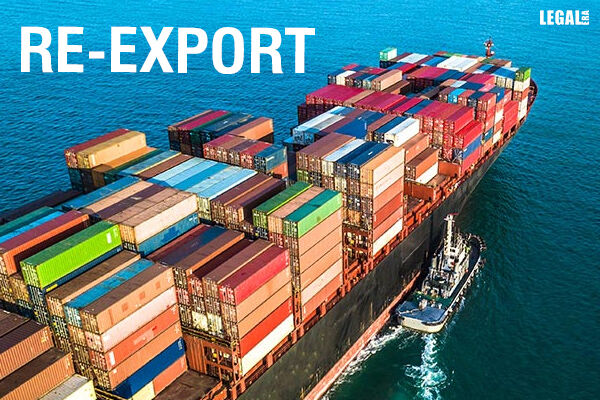
Madras High Court Allows Re-export of Seized Goods Under Strict Conditions
Legal Precedent Set by Madras High Court in Customs Seizure and Re-export Cases
In a significant judgment, the Madras High Court recently granted permission to an importer to re-export a seized consignment of textile fabrics coated with plastics. The decision was made in response to a writ petition filed by M/s Aashi Creations, which sought the re-export of the consignment to its Chinese supplier, following the seizure of the goods by the Directorate of Revenue Intelligence. This case is a critical one as it sheds light on the balance between the interests of the Revenue Department and the rights of importers when goods are seized under Customs Act, 1962.
Seizure and Misclassification Allegations
In January 2025, M/s Aashi Creations imported a consignment of textile fabrics coated with plastics from China. However, the goods were detained by the DRI based on allegations of misclassification under the Customs Tariff Heading. The authorities contended that the goods were undervalued and wrongly classified, which was further substantiated by laboratory testing conducted by the Central Revenues Control Laboratory.
Subsequent to these findings, the consignment was seized under Section 110 of the Customs Act, 1962. Despite the petitioner’s repeated requests, the Customs Department refused to allow for the provisional release of the goods. This led to a situation where the goods were essentially “stuck” in customs, pending adjudication proceedings.
The Petitioner’s Argument: No Need for Retention of Goods
The petitioner, M/s Aashi Creations, argued that even if the goods were found to be misclassified, the maximum penalty under the Customs Act would be the confiscation of goods under Section 111, with the option for redemption upon payment of a fine under Section 125. In such a case, the retention of goods by the authorities was unnecessary, as the ultimate penalty would likely involve a fine or differential duty, not the permanent forfeiture of the goods.
The importer further contended that the prolonged detention of the consignment was causing undue hardship, especially as the Chinese supplier had agreed to take the goods back. Therefore, allowing the re-export of the consignment was a reasonable and practical solution.
Court’s Analysis: Striking a Balance Between Revenue and Importer’s Rights
Justice N. Anand Venkatesh, in his judgment, noted that retention of the goods during the pendency of the adjudication proceedings was not always necessary. The outcome of the adjudication could very well result in the imposition of duty, fine, or penalty, all of which could be secured through appropriate conditions.
The Court observed that a balance must be struck between protecting the interests of the Revenue and mitigating undue hardship to the importer. In this case, the Court found that the Revenue could be protected by requiring the importer to execute a bond for the full value of the differential duty and to furnish a bank guarantee equivalent to 20% of the re-determined value of the goods.
Key Features of the Court’s Order
The Madras High Court allowed the petitioner to re-export the seized consignment back to the Chinese supplier, but subject to strict conditions:
Execution of a Bond: The petitioner was required to execute a bond for the entire value of the differential duty that might be levied on the goods.
Bank Guarantee: A bank guarantee equivalent to 20% of the re-determined value of the goods had to be furnished to ensure that any potential duty, penalty, or fine could be secured.
Re-export Timeline: Once the above conditions were complied with, the Customs authorities were directed to permit the re-export of the goods within twelve days.
Implications of the Judgment
This judgment is a landmark decision in the field of Customs and Import-Export Law in India. It highlights several important points:
Balance of Interests: The judgment demonstrates the Court’s careful balancing of the interests of the Revenue Department and the importer, ensuring that the importer does not suffer undue hardship while protecting the revenue from potential misclassification or undervaluation.
Customs Disputes and Provisional Release: The decision suggests that the retention of seized goods is not always necessary if the eventual outcome is likely to involve penalties or fine. This offers a potential shift in the approach to Customs seizures, offering a more practical and fair resolution for both parties involved.
Judicial Approach to Enforcement: The Court has emphasized that while the Revenue’s interests must be protected, there is also a need for a more flexible approach in handling cases involving seized goods, especially when it results in excessive delays or hardship for importers.
The Madras High Court’s decision is a clear step forward in ensuring that Customs enforcement is fair and practical. By permitting the re-export of seized goods subject to strict safeguards, the Court has provided a solution that accommodates both the needs of the Revenue and the rights of the importers. This judgment sets a precedent for similar cases in the future, providing clarity on how seized goods can be handled during adjudication without causing unnecessary delays or hardship to businesses.
As the world of Customs law evolves, this case may serve as a guiding principle for how seized goods are treated in the future, promoting a more balanced, efficient, and fair approach to trade and commerce in India.